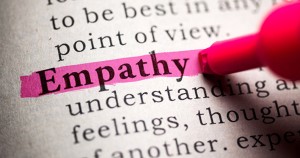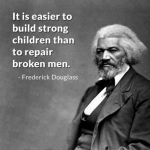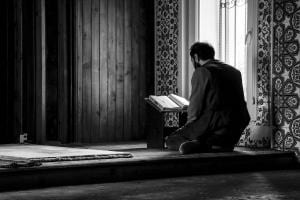
This past Ramadan I observed a couple of unfortunate ugly traits in our community. One of which is a strong judgmental, unempathetic, critical mindset where we seek out the faults of our fellow brothers and sisters. This is particularly problematic when it comes to social media. It’s too easy to hop on social media platforms and put each other on blast publicly. Very rarely thinking about the impact of our words and the extent of damage and harm we are doing.
I’ve noticed an unfortunate trend in so-called social activist and social justice activists (read keyboard-activists), individuals who find any and all opportunities to seek the limelight via calling out someone or an organization or institution in the community and putting them on blast on social media. We saw this unfortunate trend play out in numerous instances when the MLI (Muslim Leadership Initiative) happened, the CVE (Countering Violent Extremism) discussion happened, the White House Iftaar with then Pres. Obama, when Sh. Hamza Yusuf misspoke at RIS and most recently with Imam Shaker’s statements on female genital mutilation at Dar al-Hijrah.
There are several more instances of this character assassination and call-out and mob mentality, but these are the most prominent that have gone viral and caused a lot of commotion in recent times. While the call for accountability to our leadership is important it is as important to be just in our accountability and the manner in which we call for accountability. We need to truly want to educate and enlighten our leaders when they misspeak or make a statement out of ignorance.
As a community it’s unfortunate when we have so-called social justice activists who seek to gain credibility and limelight through the character assassination and destruction of individuals, institutions and organizations. If you truly want to address an issue the right way is not to burn down the entire forest to achieve your goal. Some social justice activists take this scorched-earth policy to address issues and it simply is not effective and causes a lot of divisions in the community and honestly doesn’t solve the issue at all.
Many of us think that we’re doing so much by writing petitions, social media posts, Tweet, etc. and tear down individuals, institutions and organizations so easily without even giving them time or the opportunity to recover or redeem themselves. We have a zero-mercy policy for some reason when it comes to correcting a behavior. Imagine if Allah had that same zero-mercy policy with us when we slipped or made a mistake or sinned. I thank Allah none of us are in charge of judging each other on the Day of Judgment.
The Prophet (peace be upon him) said: “A man might speak a word without thinking about its implications, but because of it, he will plunge into the Hellfire further than the distance between the east and west.” [ Sahîh al-Bukhârî and Sahîh Muslim ]
I wanted to use the most recent case of Imam Shaker from Dar al-Hijrah as a prime example of what I’m talking about. This brother has dedicated his entire life to the service of the community, yet he misspoke about female genital mutilation in a recent answer he gave. The social media activist mob came out in force before giving the imam a chance to even rectify his statement or clarify it. The community literally turned its back on him in such an ugly manner and individuals, who didn’t even know him, were commenting and saying how bad of an imam he was.
Despite issuing an apology the community continued to push for him to be fired and began a witchhunt against the imam. We’re going to throw out years of service to the community over one misspoken statement? While the statement was wrong and misinformed, are we going to completely banish, ridicule, mock and slander the imam and drive him out of our community? Are we uneducated village elders who are going to banish one of our own from our community? What kind of Islamic values, ethics and morals are we exactly exhibiting in this moment?
It really is unfortunate that our community has adopted the exact opposite of the sunnah of the Prophet Muhammad (peace be upon him). We’ve become a people who are quick to anger and judging and slow to mercy, compassion, leniency, and empathy. We are meant to be a people quick to compassion, mercy, leniency and empathy, yet our actions show the world otherwise. We are so quick to jump on social media to tear people down within minutes without even giving them a chance. Would we not want a second chance from society and others? Would we not ask Allah for a second chance?
Imagine if Allah did not give us a second chance or opportunity to repent after a sin. We honestly have become a community similar to the community during the Salem Witchcraft Trials or the Red Terror in France. This utter lack of compassion and empathy shows the sincerity in our actions. If we truly want to address issues and want the best for our community wouldn’t the better course of action be to privately advise individuals who make mistakes?
Why put a scholar who’s served the community for several years on blast without even privately consulting him? Would we do the same to our own parents? Imagine if the first thing we did when we had an argument with our parents was to put their names on social media and put them on blast—is that productive? Is it ethical? Does it truly address the problem?
Our inability to solve issues internally as a community truly shows our lack of sincerity (and by extension a boosting of our egos as well). Imam Shafi’i said:
“Support me with your advice in private, and avoid advising me in public. Surely giving advice among the people is a kind of reproach, which I would rather not listen to. If you disobey and ignore my wish, don’t be saddened if you are not obeyed.”
“To admonish your brother in private is to advise him and improve him. But to admonish him publicly is to disgrace and shame him.”
To truly address a behavior or a statement or action requires tact and sincerity. When we want to right a wrong we should truly want the best for the individual we are correcting. Putting them on blast on social media is not the way to do it nor is it effective—rather you’d do more damage than good. Imagine for a moment if a married couple were to have a fight and in every fight the husband goes on social media and puts his wife on blast or calls her out. Is that really addressing the issue or is it solving the problem? Or if the wife did the same—would it really encourage the behavior or actions of the husband to change? Probably not.
Likewise, people who are called out publicly, shamed or mocked on social media are probably less likely to take your advice no matter how right you may be. It’s about the delivery of the advice that matters and sometimes the manner of the delivery of the advice is as important as the advice itself.
While we are disgusted by the acts of extremists who misrepresent our faith with violence and complain about how our faith is misrepresented in their actions have we ever asked ourselves are we moderate Muslims misrepresenting our faith with the way we treat one another?
I have witnessed some extremely ugly behavior in our community this Ramadan from extreme judgmentalism to character assassination, backbiting and gossiping and slander of folks on social media. We complain about extremists who use violent acts to misrepresent Islam, but are some of us not acting in extreme ways with our character and treating each other without adab (manners), respect, dignity, love, compassion, and empathy?
So the next time you become disgusted in the act of terror in the name of Islam ask yourself am I doing anything that is misrepresenting Islam or am I misrepresenting my faith or the Prophet Muhammad (peace be upon him) with my actions towards others?
It does us no good to claim to be working for the cause of the community or Islam if we’re burning bridges, breaking hearts, character assassinating each other, and calling out each other. How exactly are you working towards the cause of Islam if your actions are anything but Islamic or anything from the sunnah of the Prophet Muhammad (peace be upon him)?
When you claim to represent the community or claim to be wanting to establish justice or raise awareness about an issue in our community yet your character is anything but Islamic are you truly serving Allah and the community or are you serving your own ego?
Some may say I am trying to stifle debate or discussions over critical issues. What I am saying is have the discussions and address the issues– don’t destroy a person over a mistake they made. Help educate and enlighten them on their mistake. The correction of the individual has to come from a place of sincerity of wanting the best for the person. Imagine for a moment if the Prophet Muhammad (peace be upon him) acted the way we are currently as a community with the Bedouin who urinated in the mosque. If he had treated the Bedouin harshly the Bedouin would have outright rejected Islam and the Prophet Muhammad (peace be upon him).
Now, when we treat each other harshly are we truly going to change a behavior or address the issue or are we just tearing someone down for the sake of tearing someone down or are we truly wanting to address the behavior, statement or issue at hand?
I am not calling for a halt to any discussions or dialogues over the numerous issues we face as a Muslim community, but rather I am calling for adab (manners), mutual love, mutual compassion, and mutual empathy to be injected in our discussions. I also call for us to not debate, but to discuss and have dialogue over these issues. The problem with debating topics and issues is we are in the mindset of me vs. them or us vs. them and that often leads to us boosting our egos via debate which simply isn’t healthy for us spiritually nor is it productive.
We can have as many debates as we want over community issues and challenges, but seriously at the end of the day let’s say you do “win” the debate what is that doing to actually tackle or overcome the challenge?
Imam Shafi’I also said:
“I never once argued with anyone hoping to win the debate; rather I always wished that the truth would come from his side.”
Lastly, if imams or any community leaders do anything illegal or criminal we need to call it out, but take it to the authorities and by all means address the issue, but if it’s misspoken statements or words these issues can be solved internally as a community. There is no need for us to create a scene in the media and add more fodder for Islamophobes or anti-Muslim bigots.
The Islamophobes and anti-Muslim bigots probably are monitoring our crabs-in-a-barrel mentality and saying “hey they’re doing our job for us.” We must stay united, stay compassionate, stay merciful, and stay as people of empathy and mutual understanding. Otherwise we’ll be doing ourselves, our community and our faith a huge disservice.
When you have the choice between judgment and empathy. Choose empathy. When
May Allah make us a more compassionate, merciful, forgiving and caring community that actually acts upon and lives the Quran and Sunnah. Ameen.












